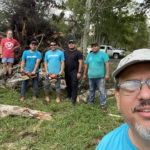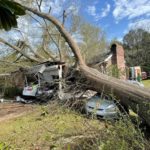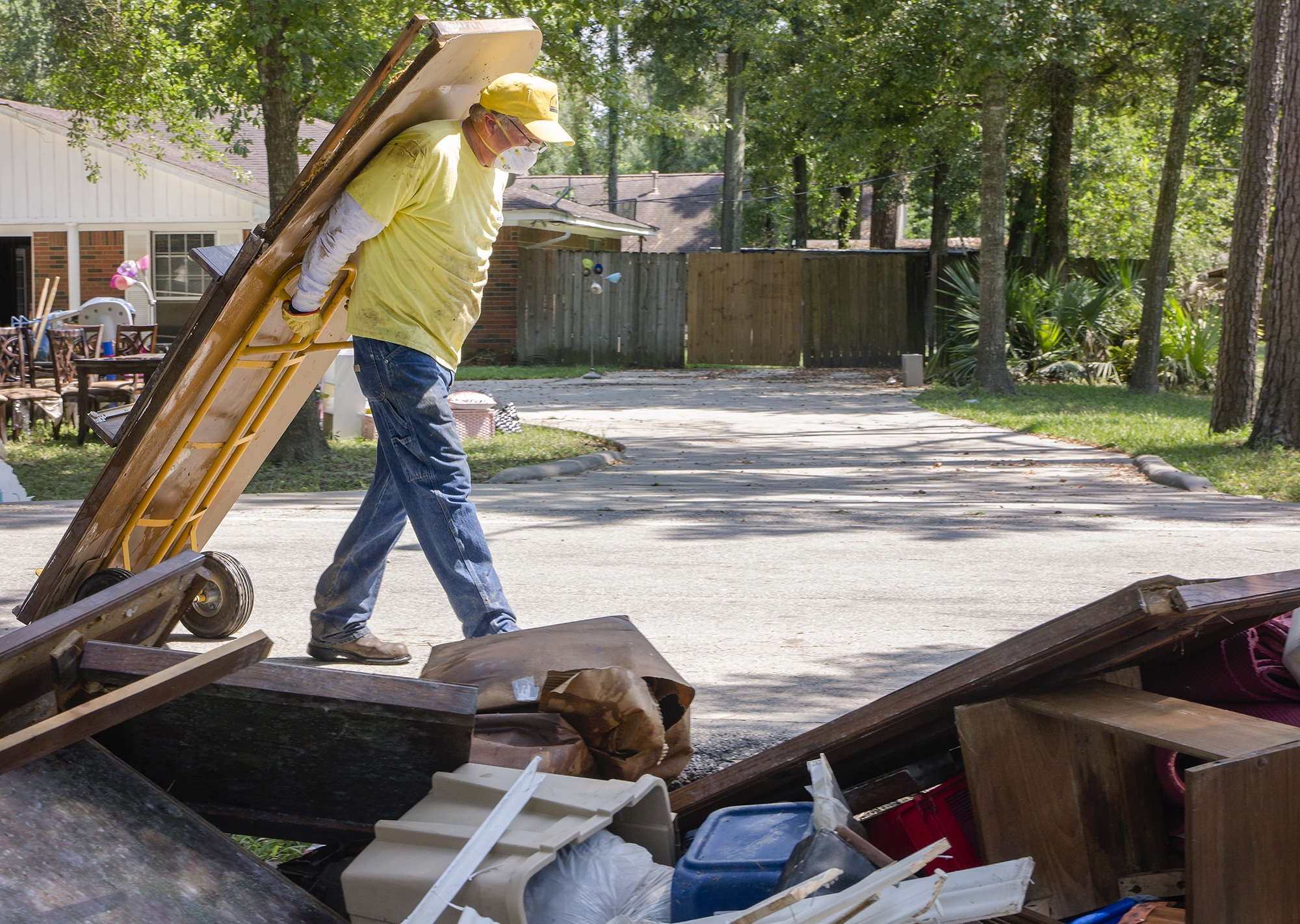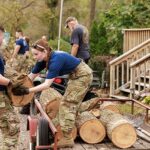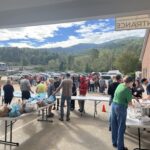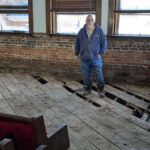
CANADIAN, Texas (BP) – In 1992, Gene Cockrell took $2,000 of concrete and steel and built a dinosaur overlooking highway 60 near his home. He named it “Aud” in honor of his wife, Audrey, and wanted it to serve as a sign for children traveling back to his hometown.

Canadian – called the “Oasis of the High Plains” for its surrounding mesas like the one where Aud was perched – was close. The children could know they were almost home.
On Feb. 27, an evacuation order forced residents of this panhandle town to see Aud from their rearview mirrors. As citizens made their way to safety the fire chief – a volunteer alongside his entire department – stayed to battle the flames.
“I was listening to the scanners around 3:30,” First Baptist Church pastor Matt Phenix told BP. “He came on and called them all to save the town. If he had not done that, there probably wouldn’t have been a Canadian, Texas, left.”
Residents in Canadian and other towns are recovering from what is now the largest wildfire event in Texas history.
The Smokehouse Creek fire has burned over a million acres of the panhandle, said the Texas A&M Forest Service. While that fire is located primarily in Hutchinson County, immediately to the west the Windy Deuce Fire has consumed more than 144,000 acres in Moore County. The Grape Vine Creek fire, located southwest in Moore County, has destroyed nearly 35,000 acres.
Officials confirmed Thursday, March 7, that the Smokehouse Creek and Windy Deuce fires were ignited by power lines.
Volunteers with Top O’ Texas Baptist Association, based in Pampa, are involved in the cleanup effort alongside Disaster Relief volunteers from Texans on Mission (formerly Texas Baptist Men), who are also based in Fritch, and the Southern Baptists of Texas Convention (SBTC), based in Canadian.

“We have about 50 people from SBTC Disaster Relief staying here,” said Phenix. Fifteen Disaster Relief volunteers from New Mexico are currently staying at the church alongside 10 from Arkansas.
“We have an SBTC trailer owned by the association for washing clothes and showering,” said James Greer, in his 18th year as missions strategist for the association. “Another trailer is expected to help feed up to 250 people a day, which can get up to around 300 when they start moving out the ash.”
The outside help is appreciated, but Greer knows the cleanup process will be extensive.
“We’ll be the ones left, but we don’t mind,” Greer said. “We’re here for the long haul.”
Oklahoma Southern Baptist Disaster Relief teams have been responding to fires in their own state.
“Our volunteers are delivering pallets of water, snacks, etc. to Gage and other parts of Ellis County,” said Oklahoma Baptists Disaster Relief Director Jason Yarbrough on Feb. 28. “I have requested ash-out recovery teams to respond to that area, as there are about a dozen homes impacted or destroyed. This would include a feeding team in addition to our other volunteers.
“I was also called by our disaster relief friends in Texas to be on alert for the possibility of helping with homes in Texas Panhandle.”
Originally from Pasadena, Texas, Phenix will mark nine years at FBC Canadian in June. He arrived as the new minister of music and administration, but five years ago moved into the interim pastor role when his predecessor left. About six months after that, the interim label was dropped.
He and his family live on the south side of town across the street from Canadian Elementary School. The flames got close to a quarter-mile from his house, Greer said, but were stopped at Hackberry Trail.
Phenix told BP he received an email from the county estimating home value damages at $4.5 million. And while the fires have brought significant losses for individual ranchers, it is not expected to greatly impact beef costs.
Two deaths have been recorded. A third on March 9 was not directly attributed to the wildfires, but Zeb Smith, volunteer fire chief for the town of Fritch, had been fighting fires for nine days straight when he entered a structure that was ablaze and didn’t come out.
It was “with pretty good certainty,” said a spokesman, that the pace at which Smith had been working played a role in his death.
“I knew that guy; talked to him a few days ago,” Greer said on March 6. “He had just finished fighting a fire and I was already in the area. We talked about 15 minutes about what was going on and who was coming in to help.”


